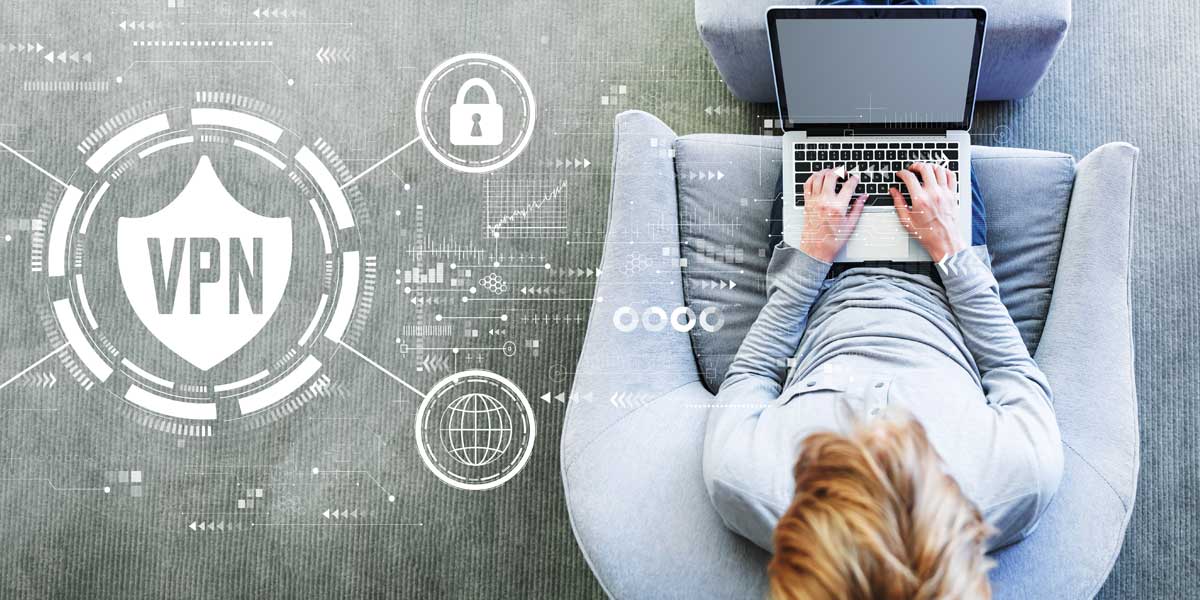Stepping into a time machine and transporting an office worker from 2003 to the present would reveal the remarkable advancements in technology and the profound evolution of our work environment. The traditional office has undergone a radical transformation, freeing many from a centralized workspace's daily commute and interruptions. Today, your office can be as flexible as the kitchen table or a local coffee shop, providing newfound freedom. However, this liberation comes with a caveat. The shift to remote work, while enhancing productivity and engagement, has opened a Pandora's box of security concerns. Despite the idyllic scenario of working in pajamas, cyber security threats loom large. From understanding risks to implementing robust security measures, this guide equips you with the knowledge to fortify your home office security, ensuring a secure work-from-home experience.
Are you Neglecting Your Home Office Security? Watch this video now!

Understanding the Risks — Why You Need Home Office Security for Your Employees in Spokane and Medford
In the realm of remote work, the cybersecurity stakes are higher than ever, with a startling 95% of incidents attributed to human error, according to Deloitte's Future of Cyber 2023 report. This human vulnerability is magnified when your workforce operates from diverse locations, each posing unique security challenges. Working from home becomes a playground for cyber threats, relying on shared family Wi-Fi and personal devices that lack the robust protection of company-issued hardware.
95% of Cybersecurity Incidents are Attributed to Human Error!
In this liberating yet vulnerable environment, transferring sensitive business data outside secure office parameters is a ticking time bomb. Just one compromised device or a simple human error can jeopardize the entire business. The solution lies in proactive security measures like firewall security to fortify defenses, mitigating risks, and ensuring your company's safety in this digital era.

Home Office Security Essentials - What You Need to Protect Your Business
Like your grandma's timeless advice of "safety first," this principle holds true for your home office. And the first step? Establishing a solid foundation through fundamental security measures. These basics, likely routine in your office, are equally crucial in your employees' home workspaces for comprehensive security:
- Strong Passwords: Ensure both computers and Wi-Fi networks are protected by robust, unique passwords.
- Multi-Factor Authentication (MFA): Add an extra layer of defense by implementing MFA for enhanced identity verification.
- Regular Updates: Update software and systems to patch vulnerabilities and bolster security.
- Education and Empowerment: Educate your team on cybersecurity best practices, empowering them to recognize and mitigate potential threats.
- Backup: Regularly back up essential data to prevent loss in case of security breaches or system failures.
- Secure Video Conferencing: Prioritize specific platforms for virtual meetings to safeguard against unauthorized access.
You set the stage for a resilient and secure home office environment by prioritizing these foundational elements.

Advancing Your Defenses: Advanced Home Office Security Measures
Having fortified the fundamentals, it's time to elevate your security stance with advanced strategies, adding an extra layer of protection to your data within your team's home offices in Medford and Spokane. Here are key advanced measures to consider:
-
VPN (Virtual Private Network):
Establish a secure connection over the internet, safeguarding data transmission from potential threats.
-
Device-Specific Security:
Implement robust security protocols on each device used for work to mitigate individual vulnerabilities.
-
Secure File Sharing and Collaboration:
Choose platforms with enhanced security features to ensure safe collaboration and file sharing.
-
Intrusion Detection and Prevention Systems (IDPS):
Employ systems that monitor and respond to potential security threats in real-time.
-
Ongoing Employee Training:
Regularly educate your team on evolving cybersecurity risks and best practices for staying secure.
-
Incident Response Plan:
Develop a comprehensive plan to respond effectively to security incidents, minimizing potential damage. Having a disaster recovery plan in Spokane and Medford is essential!
-
Third-Party Risk Management:
Assess and manage the security risks associated with third-party tools or services used for work.
-
Data Encryption:
Implement encryption protocols to protect sensitive information, rendering it unreadable to unauthorized parties.
Integrating these advanced strategies fortifies your home office environment against sophisticated cyber threats.

Adapting to the Cybersecurity Landscape: Continuous Monitoring Strategies
In the ever-evolving realm of cybersecurity, staying ahead of potential threats is paramount for protecting your remote workers and business data. Embracing the principles of continuous monitoring and adaptation is the key to ensuring robust security. Here are essential strategies to implement:
-
Real-time Detection:
Employ tools and systems that enable the real-time detection of potential security threats, allowing for swift response.
-
Security Information and Event Management (SIEM):
Utilize SIEM solutions to collect and analyze security data, enabling comprehensive threat detection and response.
-
Threat Intelligence:
Stay informed about evolving cybersecurity threats and trends to adapt your security measures proactively.
-
Security Audits and Penetration Testing:
Conduct regular security audits and penetration tests to identify vulnerabilities and reinforce defenses.
-
Security Patch Management:
Keep all systems and software up-to-date with the latest security patches to address known vulnerabilities.
-
Incident Response Refinement:
Continuously refine your incident response plan based on real-world incidents and lessons learned.
-
Employee Training:
Ongoing training for employees on cybersecurity best practices ensures they remain vigilant and informed.
-
Compliance and Regulation:
Stay compliant with industry regulations and standards, aligning your security practices with legal requirements.
By integrating these continuous monitoring strategies, you adapt to the dynamic cybersecurity landscape and reinforce the resilience of your remote work environment.
We Are Your Home Office Security Experts
Having now navigated the diverse landscape of cybersecurity, you are now equipped with strategies to fortify your remote workers and home office. But remember, you're not navigating this terrain solo. Adept Networks is ready to assist you in elevating your network security and standards for both remote and office-based systems. Whether you're grappling with emerging threats or seeking proactive advice, our expertise is at your disposal. Your IT cyber security in Medford and Spokane is our priority, and we're here to ensure that you're well-equipped to navigate the dynamic challenges of today's digital world.

